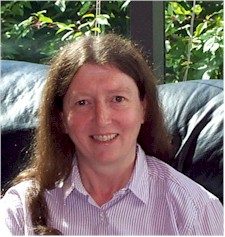Industry Event
CIKM 2010 is proud to present a series of invited talks by distinguished industry speakers representing a variety of technology areas, geographic regions, and company sizes.
This year, invited speakers will give an opening keynote/anchor talk for the Industry Track paper session in their area of expertise, followed by three Industry Track papers for that session.
The following is the currently scheduled list of Industry Track sessions with their associated speakers.
General Keynote
Dr. Susan Dumais - Principal Scientist, Microsoft Research.

Susan Dumais is a Principal Researcher and manager of the Context, Learning and User Experience for Search (CLUES) Group at Microsoft Research. Prior to joining Microsoft Research, she was at Bellcore and Bell Labs for many years, where she worked on Latent Semantic Indexing (a statistical method for concept-based retrieval), interfaces for combining search and navigation, and organizational impacts of new technology. Her current research focuses on user modeling and personalization, context and information retrieval, temporal dynamics of information, interactive retrieval, and novel evaluation methods. She has worked closely with several Microsoft groups (Bing, Windows Desktop Search, SharePoint Portal Server, and Office Online Help) on search-related innovations. Susan has published more than 200 articles in the fields of information science, human-computer interaction, and cognitive science, and holds several patents on novel retrieval algorithms and interfaces. Susan is also an adjunct professor in the Information School at the University of Washington. She is Past-Chair of ACM's Special Interest Group in Information Retrieval (SIGIR), and serves on several editorial boards, technical program committees, and government panels. She was elected to the CHI Academy in 2005, an ACM Fellow in 2006, and received the Gerard Salton Award from SIGIR for Lifetime Achievement in 2009.
Database and OLAP Session
Dr. Glenn Paulley - Director, Engineering at Sybase iAnywhere
Turning Dark Clouds into Silver Linings
Data management services are ubiquitous in the industry. With some important exceptions, relational database systems are the platform upon which many applications depend, including mainframe servers, web browsers, and handheld devices. The vast majority of these installations run unattended. Consequently, self-management, self-tuning, and self-healing features are of great importance to these systems. Cloud computing architectures, due to their inherent dynamics, add another level of flexibility - and complexity - to the problems of database self-management.
However, application developers continue to experience unpredictable performance and reliability issues with the application's software stack. Over the past few years, these issues have led to a variety of proposals to address the problem, including weak consistency models and the abandonment of SQL as a data management sub-language.
In this talk I'll present an overview of the data management problems in relational database systems that are exacerbated by cloud computing architectures, discuss the state-of-the-art in self-management technology, and conclude with some ideas for future research to address these problems.
Speaker Information

Glenn Paulley is a Director with Sybase iAnywhere Engineering, where he manages the research and development team responsible for query processing in SQL Anywhere, Sybase's self-managing relational database server. He joined Sybase iAnywhere in 1995. During his 20-year industrial career Glenn has held previous positions at Amdahl Corporation and at a large Canadian insurance company. He holds a Ph.D in Computer Science from the University of Waterloo. His research interests include software usability, query optimization, information systems architecture, design of Management Information Systems, topics in systems analysis, interfaces to database systems, database query languages, user models, multidatabase systems, and indexing techniques.
Web and Social Networks Session
Dr. Gordon Sun - Chief Scientist, Tencent Technology
On-line Social Networks: Insight, Commercial Value and Computational Challenges
In China, Tencent is almost a ubiquitous synonym of the Internet. With over 600M active user accounts and boosting over 100M users online simultaneously, Tencent offers a unique and comprehensive window into the Chinese Internet users - the world's largest Internet population. We first present our findings studying the individual characteristics of the Tencent users and their social properties, comparing with the general Chinese Internet population. For two notable Tencent SNS products, QZone (Facebook comparable) and Weibo (Twitter comparable), we also draw comparison on various perspectives with other social networks such as the Twitter network and the coauthorship network in Computer Science. We then examine the functionality and revenue models of social networks in general. Discussed are specific details on a number of computational aspects, such as user models (behavior, interests, values, and influences), recommender systems for topics, content, and friends, social search, advertising and marketing in social networks. To conclude this talk, we list some challenging problems that we believe are calling for better techniques and solutions from the research community.
Speaker Information

Gordon Sun, Chief Scientist, Tencent Technology, China, has been working on algorithmic search technology since 1998 when he joined Inktomi (the leading US search engine company during 1990s) as the senior scientist and architect. He also worked for two search engine companies, WiseNut and LookSmart as the director of R&D during 2001 to 2003 before he joined Yahoo early 2004 where he was leading the Global Search Relevance team as the director of research until 2009. Gordon graduated from University of Science and Technology of China and went to the US through the CUSPEA program (sponsored by Nobel Price Winner Prof. T.D. Lee ) in 1981 and received his Ph.D. in theoretical physics from University of Iowa, 1984. He worked as the Research faculty in University of Maryland for 9 years before he moved to Silicon Valley, 1993, and worked in Communication Intelligence Inc, a leading hand-writing recognition provider, as the Chief Scientist. He has broad work experiences, knowledge and publications in neural networks, pattern recognition, machine learning, data mining, information retrieval, speech recognition, hand-writing recognition and non-linear dynamics.
Information Retrieval Session
Dr. Vasco Pedro - CEO and Co-founder, Bueda, Inc
The shift from search to matching
The focus on providing a personalized online experience is creating a shift in information retrieval from search strategies, where a user starts as an anonymous entity and the search engine performs a passive role, to matching strategies, where there is a wide array of information about the user even before the first interaction has taken place. In a matching driven model, the search engine takes a proactive role, functioning as a broker of information between two rich information sets. The trend can be seen in a wide range of online activities. From watching movies to online purchases, from the way we listen to music to the way we find our significant others a trend in personalization emerges as user information becomes available. As the amount of personal information online increases exponentially, the ability to understand that content is providing a wealth of opportunities for companies to provide unique online experiences in previously inaccessible areas such as search and targeted advertising. In this talk we will discuss key challenges facing information retrieval as it moves through this shift and how semantic information can help alleviate those challenges.
Speaker Information

Vasco Pedro is the Founder and CEO of Bueda, semantic web startup focused in understanding the social web. At Bueda, he was responsible for producing the research that led to the creation of the company, building the current team and successfully guiding Bueda through two rounds of funding and two product launches. His main interests are the leveraging of semantic understanding on the social web to create smarter applications and the understanding of human behavior through semantic analysis. Vasco got a PhD in 2009 from the Language Technologies Institute, Carnegie Mellon University, with the thesis topic of Federated Ontology Search. He has authored several papers in international conferences and is currently an invited researcher at Carnegie Mellon University in addition to his role at Bueda.
Text Mining, Analytics, and Advertising Session
Dr. James Shanahan - Independent Consultant, Church and Duncan Group, Inc
Digital advertising: personalization, personalization, and personalization
Online advertising is a form of promotion that uses the Internet and World Wide Web for the expressed purpose of delivering marketing messages to attract customers. Examples of online advertising include text ads that appear on search engine results pages, banner ads, in-text ads, or Rich Media ads that appear on regular web pages, portals or applications. Since it inception over 15 years ago, online advertising has grown rapidly and currently accounts for 13% of the overall advertising spend (which is approximately $700 billion worldwide)). A large part of the more recent success in this field has come from the following key factors:
- Personalization: offline advertising (via broadcast TV, radio, newspaper etc.) is largely a broadcast form of communication where as digital advertising is much more targeted and thus enables a personalized, and possibly informative, message to consumers.
- Interactivity: internet advertising is becoming increasingly interactive with the advent of new forms of advertising such as social advertising; this is enables advertises and consumers to operate in a more conversant manner.
- Engagement: consumers are spending more time online than with any other form of media thereby enabling a broader reach and deeper connection with consumers.
- Explainability: advertisers are beginning to understand their consumers better.
This shift in focus in digital advertising from location (i.e., publisher web pages) to personalization has brought with it numerous challenges some of which have received a lot of research attention in the DIK communities (Data, Information and Knowledge communities) over the past 10-20 years. In this talk I will review, along the dimensions outlined above, some of these key technical problems and challenges that arise when adverting becomes personal. This will be done within the context of the elaborate (and ever-evolving) ecosystems of modern day digital advertising where one has to capture, store, and process petabytes of data within the constraints of a, sometimes, sequential workflow. The ultimate goal to is provide millisecond-based decision-making at each step of this workflow that enables customizable and engaging consumer experiences.
Speaker Information

Jimi has spent the last 20 years developing and researching cutting-edge information management systems to harness information retrieval, linguistics and machine learning. Prior to being an independent consultant, Jimi was Chief Scientist (and member of executive team) at Turn Inc. where he focused on the development and deployment of an online ad targeting system (CPA/CPC/CPM-based) in a principled and measured way that leveraged advanced statistical and machine learning techniques. These responsibilities included leveraging the entire reservoir of data assets in order to develop methods for identifying key optimizations, deploying relevant analytical tools and improving the user experience. Prior to joining Turn, Jimi was Principal Research Scientist at Clairvoyance Corporation where he led the Knowledge Discovery from Text Group. Before that he was a Research Scientist at Xerox Research Center Europe (XRCE), where, as a member of the Co-ordination Technologies Group, he developed Document Souls, a patented document-centric approach to information access. In the early 90s, he worked on the AI Team within the Mitsubishi Group in Tokyo.
He has published six books and over 50 research publications in the area of machine learning and information processing. Jimi was General Chair for CIKM 2008. Jimi received his Ph.D. in engineering mathematics from the University of Bristol, U. K. and holds a bachelor of science degree in computer science from the University of Limerick, Ireland. He is a Marie Curie fellow and member of IEEE and ACM.
|


